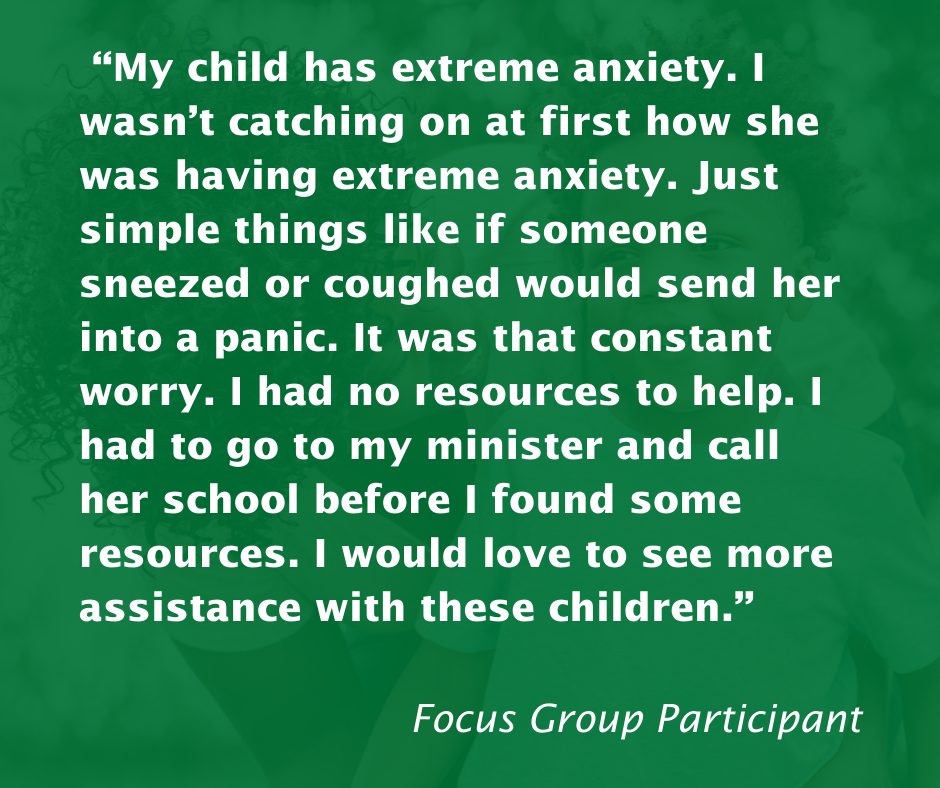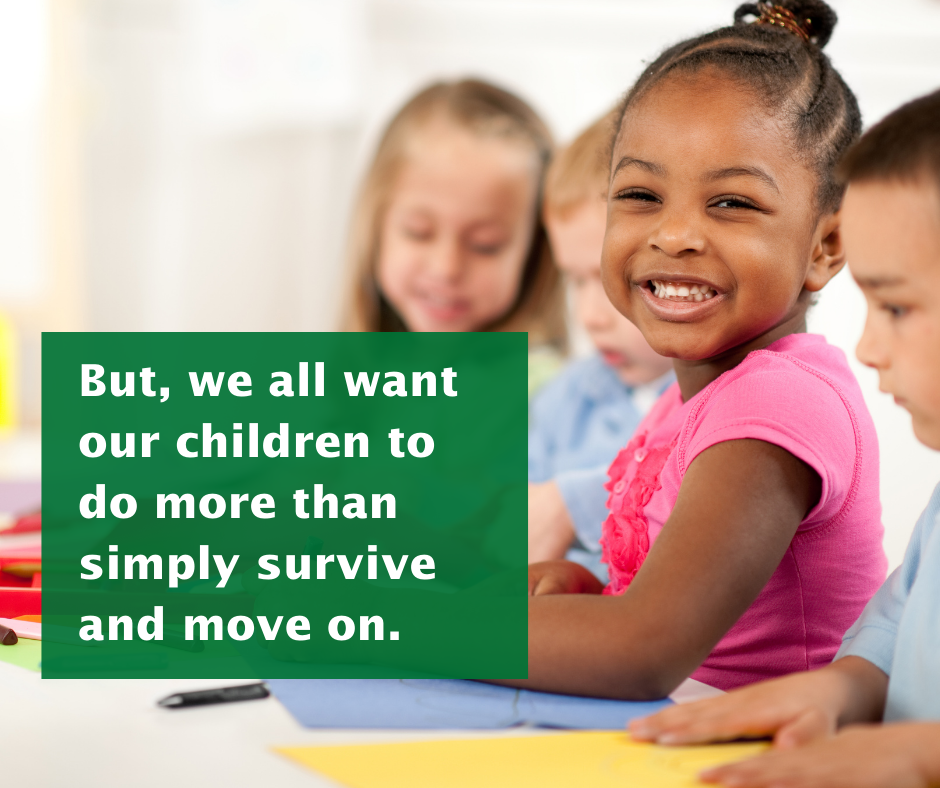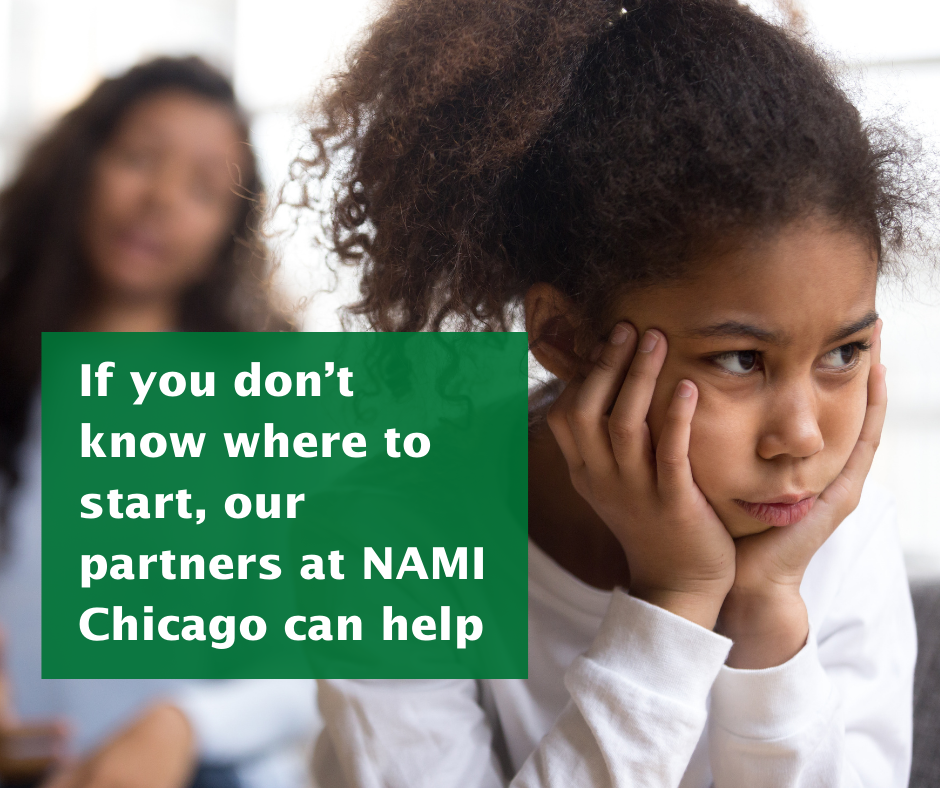Please call NAMI’s helpline for 24/7 confidential support if you need a listening ear.
Do you suspect your child is struggling and you aren’t sure what to do?
You Are Not Alone
According to the CDC, nearly 1 in 5 low-income children have a mental, emotional, or behavioral disorder, such as anxiety or depression, attention-deficit/hyperactivity disorder (ADHD), autism spectrum disorder (ASD), disruptive behavior disorder, or Tourette syndrome. Unfortunately, only about 20% of children with mental, emotional, or behavioral disorders receive care from a specialized mental health care provider.
 In 2021, we conducted focus groups among our community members to see what they needed most from CEDA services. Mental health care was a top concern, particularly among parents looking for more support for their children. Specifically, our community wanted to “help with my child deal with stress, anger, depression or emotional issues.”
In 2021, we conducted focus groups among our community members to see what they needed most from CEDA services. Mental health care was a top concern, particularly among parents looking for more support for their children. Specifically, our community wanted to “help with my child deal with stress, anger, depression or emotional issues.”
One mother shared her observations about her child’s mental health and the lack of resources she confronted when trying to deal with it, “My child has extreme anxiety. I wasn’t catching on at first how she was having extreme anxiety. Just simple things like if someone sneezed or coughed would send her into a panic. It was that constant worry. I had no resources to help. I had to go to my minister and call her school before I found some resources. I would love to see more assistance with these children.”
Mental Health in Communities of Color
Who can relate to what this community member told us recently?
“Speaking for the Back community, mental health is not an option. That’s how we’re raised; it’s how we’re born; how we’re bred. We’ve seen so many challenges and mental health is just not one of them. You go through what you go through, and you move on. You talk to God, and you move on. You read your bible, and you move on. You go to church, and you move on. So in the Black community, if someone says they have mental health issues, they get looked at in a certain way.”
We’ve heard similar sentiments from our Hispanic community.
 But, we all want our children to do more than simply survive and move on. We want our children to thrive. And sometimes, mental health is a matter of life and death. It’s essential that all children, including children of color, have access to life-saving health care, including mental health care.
But, we all want our children to do more than simply survive and move on. We want our children to thrive. And sometimes, mental health is a matter of life and death. It’s essential that all children, including children of color, have access to life-saving health care, including mental health care.
Common Risk Factors
Like so many families, if your family is struggling with any of these issues, your child is more likely to need mental health care:
- Drug or alcohol dependency in the home
- Housing, food, or financial instability
- Living in high-crime neighborhoods
- Death in the family
- Witnessing violence in the community
Watch for the Signs of Struggle
Every child and family is different. You know your child best, so if you have any concerns, please don’t hesitate to reach out to NAMI Chicago or another mental health resource for help.
Some of the most common signs that a child may be struggling with their mental health identified by the Mayo Clinic are:
- Persistent sadness that lasts two weeks or more
- Withdrawing from or avoiding social interactions
- Hurting oneself or talking about hurting oneself
- Talking about death or suicide
- Outbursts or extreme irritability
- Out-of-control behavior that can be harmful
- Drastic changes in mood, behavior or personality
- Changes in eating habits
- Loss of weight
- Difficulty sleeping
- Frequent headaches or stomach aches
- Difficulty concentrating
- Changes in academic performance
- Avoiding or missing school
What To Do
 Though we at CEDA are not mental health experts, we partnered with NAMI Chicago for Mental Health Awareness Month in May. We’re bringing their excellent resources to our community, particularly those affected by the complex realities of worsening mental health challenges for children.
Though we at CEDA are not mental health experts, we partnered with NAMI Chicago for Mental Health Awareness Month in May. We’re bringing their excellent resources to our community, particularly those affected by the complex realities of worsening mental health challenges for children.
If you don’t know where to start, our partners at NAMI Chicago can help connect you with over 700 resources for you and your family, including recommendations for mental health providers. NAMI has mental health resources and suggestions to help with other household issues that might be contributing to mental health challenges at home. They also have a 24/7 helpline if you need a listening ear.
Don’t Forget to Take Care of You
Parenting and the pressures of everyday life can be a lot, particularly if your child is having a difficult time. As you’re seeking answers and help for your child, consider seeking support for yourself at the same time. There’s no shame in needing a little help sometimes.
Contact our partners at NAMI Chicago to get that help.